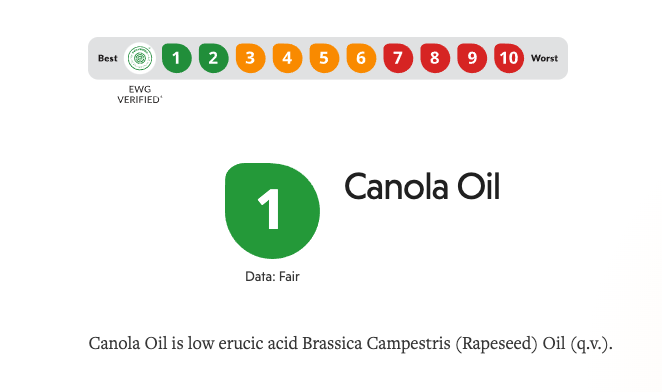The Truth About Canola
The Good News About Canola
Non-GMO expeller pressed hexane free Canola Oil, Brassica napus, is a moisturizing oil that promotes healthy skin. You may be wondering how an oil traditionally used for cooking can benefit the skin. Canola oil contains linoleic (omega-6) and a-linolenic acid (omega-3) essential fatty acids at a 2:1 ratio which mimics the fatty acid ratio of healthy skin. (National Library of Medicine)
Non-GMO expeller pressed hexane free Canola oil is rich in vitamin E and K, which helps to eradicate skin problems like wrinkles, fine lines, acne, blemishes etc. Rich in Vitamins E and K, the oil reduces skin afflictions and ageing signs like acne, fine lines, wrinkles, blemishes and spots. Canola oil contains a good amount of anti-oxidant vitamin E, which is a powerful lipid soluble anti oxidant. It protects the skin from oxygen free radicals, thus making it soft and nourished, giving a youthful appearance.
Expeller Pressed Hexane Free
Non GMO expeller-pressed canola oil is considered a healthier way to produce canola oil because it’s made without chemicals, and it has several benefits. Expeller pressing uses a screw-type machine to squeeze oil out of the seeds without solvents (Hexane), so there’s no chance of hexane residue. That’s what we use in our formulation at 15% for the skin benefits
Environmental Benefits
Non-GMO expeller pressed hexane free Canola oil plays a vital role in sustainable agriculture by enhancing soil health, sequestering carbon, and supporting biodiversity. For instance, canola fields provide a habitat for beneficial insects like bees, butterflies, spiders, wasps, and beetles, which are crucial for pollination and ecosystem balance.
In contrast, while olive oil is a healthy addition to most diets, its environmental impact is significant. The journey of olive oil to the U.S. involves a large carbon footprint, as it is often imported from distant regions. Additionally, olive oil can make bars slightly sticky, and its price can be unpredictable due to fluctuations in international trade and market conditions.
On the other hand, canola offers further environmental benefits by supporting conservation tillage practices. This helps protect topsoil, preserve organic matter, and store both carbon and essential nutrients in the soil, all while reducing greenhouse gas emissions through carbon sequestration.


